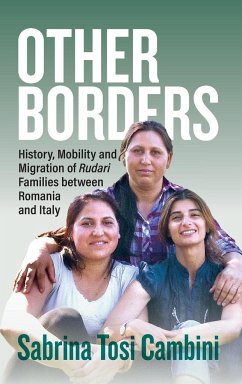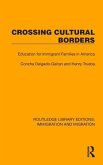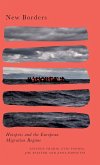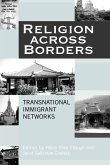Rudari Lingurari families, one of many significant minority groups in Southeastern Europe, have been characterized by mobility since the end of the nineteenth century, from voluntary border crossings to deportations and forced relocations. Other Borders draws from participatory, multi-site ethnographic research to explore rudari families' cultural and relational frames of mobility through their social and economic organization. Sabrina Tosi Cambini develops the concept of 'moving gaze' to more effectively explore rudari migration paths across multiple countries, their occupation of unoccupied buildings in Italy, their housing practices in both Italy and Romania, and the movement of their objects, ideas and imaginaries.
Hinweis: Dieser Artikel kann nur an eine deutsche Lieferadresse ausgeliefert werden.
Hinweis: Dieser Artikel kann nur an eine deutsche Lieferadresse ausgeliefert werden.








